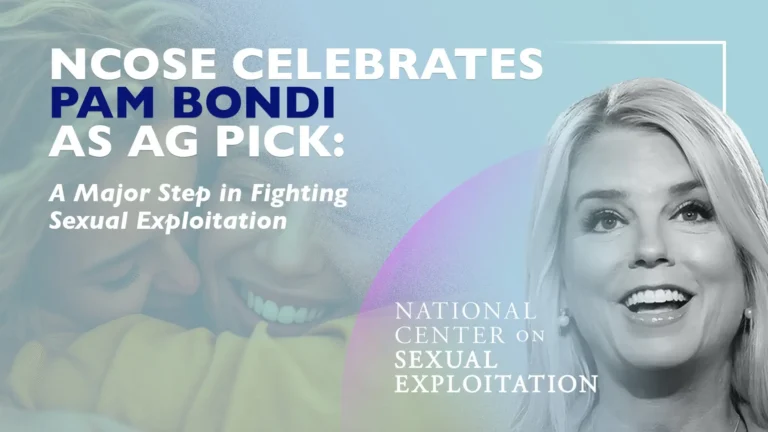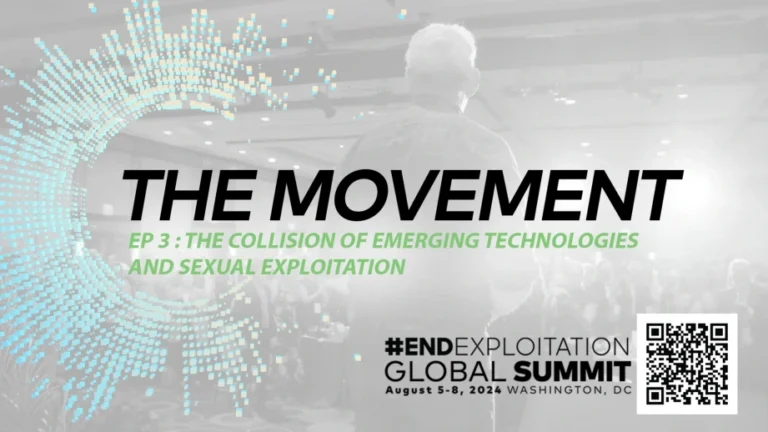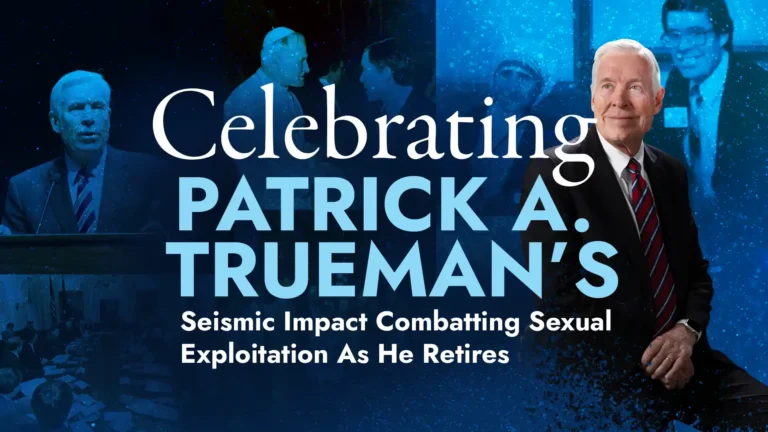Watch Our Latest Video Here:
Dani Pinter from the National Center on Sexual Exploitation’s Law Center explains obscenity law and it’s implications for Internet pornography today.
All speech is presumptively protected under the First Amendment. However, “obscene pornography” is not.
There are large categories of speech that are unprotected, for example child pornography, blackmail, or defamation. Obscenity falls into this category of criminal speech.
That is why federal law is acting within the bounds of the First Amendment in its law that prohibits the distribution of obscene adult pornography on the Internet, on cable/satellite TV, on hotel/motel TV, in retail shops, through the mail, and by common carrier.
So what is obscenity?
Obscenity is determined in a court of law by a jury on a case by case basis.
In Miller v. California, the Supreme Court established a three-pronged test for determining whether a “work” (i.e., material or a performance) is obscene and therefore unprotected by the First Amendment.
To be obscene, a judge and/or a jury must determine:
First, that the average person, applying contemporary community standards, would find that the work, taken as a whole, appeals to the prurient interest;
AND second, that the work depicts or describes in a patently offensive way, as measured by contemporary community standards, “hardcore” sexual conduct specifically defined by the applicable law;
AND third, that a reasonable person would find that the work, taken as a whole, lacks serious literary, artistic, political and scientific value.
Hardcore pornography today typically meets these criteria, and is therefore most likely illegal, or at least open to prosecution by the Department of Justice.
The U.S. Supreme Court has repeatedly upheld obscenity laws against First Amendment challenges, explaining that obscenity is not protected speech. Even so, the U.S. Department of Justice (DOJ) refuses to enforce existing federal obscenity laws.
All girls, boys, women, and men have a natural human dignity and thus a right to live lives free from sexual exploitation. All pornography is degrading, dehumanizing, exploitive, and a violation of this right.
Our nation is now suffering from an emerging public health crisis fueled by the widespread distribution of adult, hardcore pornography, and the Department of Justice bears a great burden of responsibility for this crisis.



